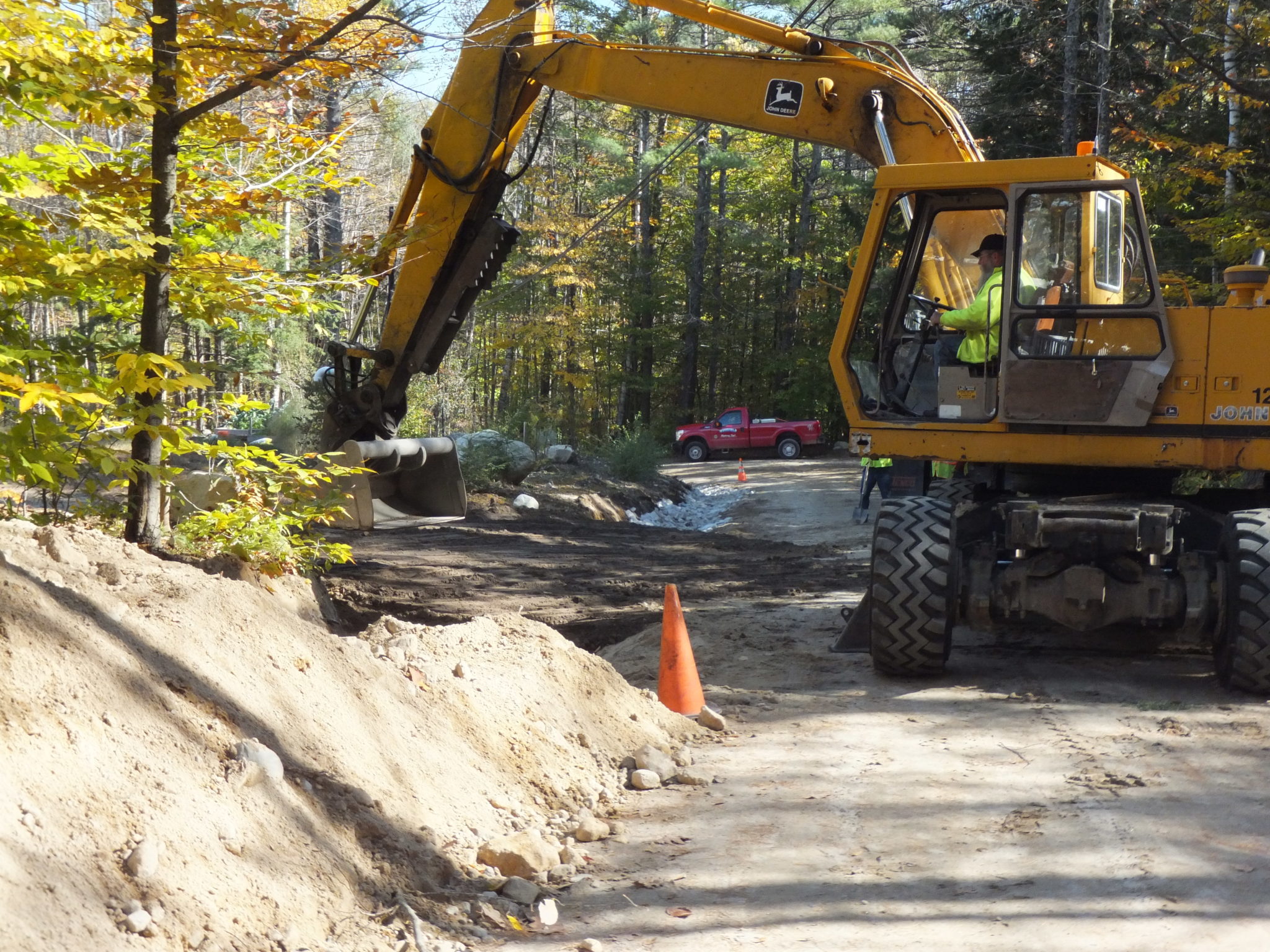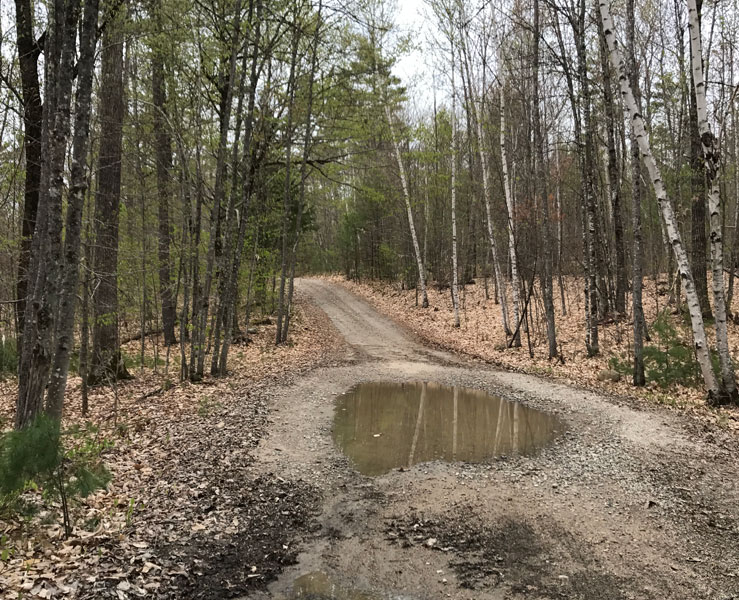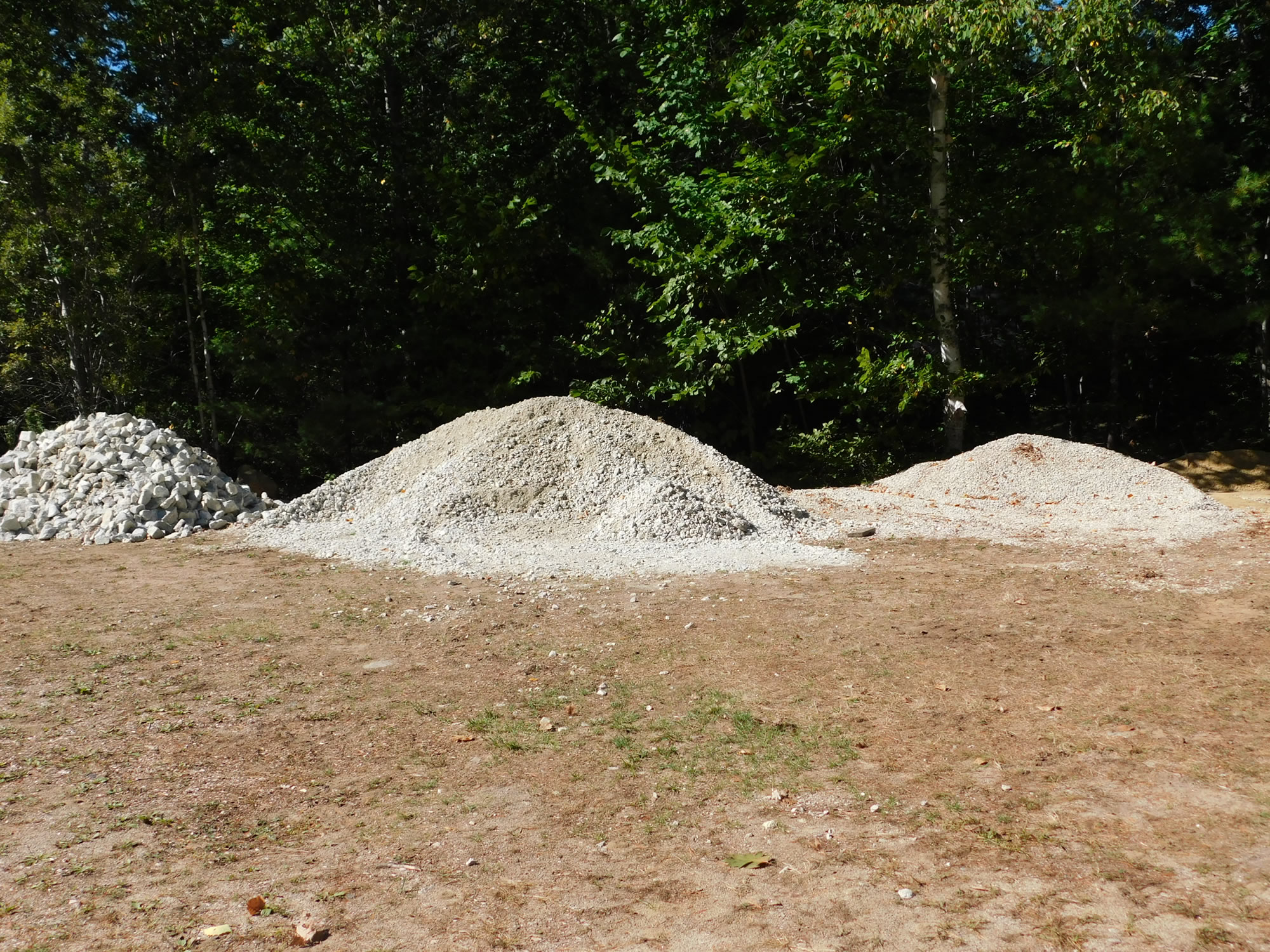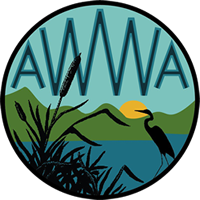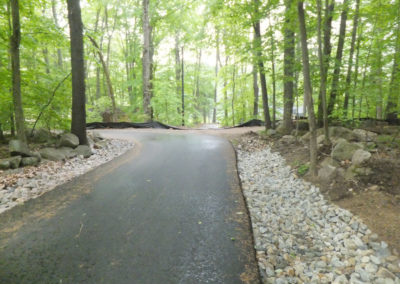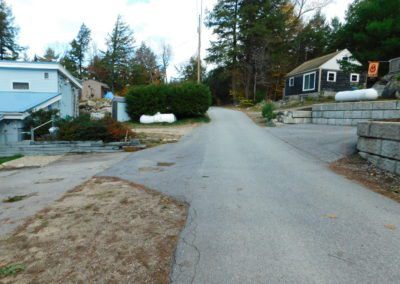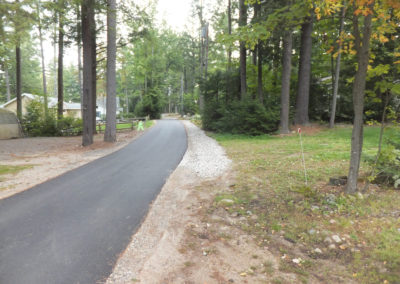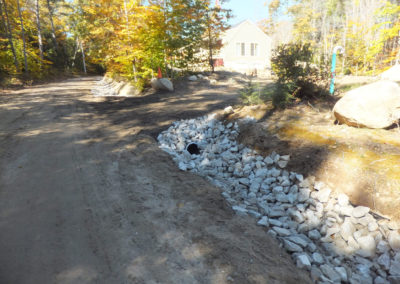Take Action: What You Can Do
Camp Road Maintenance
Roadways often contribute large amounts of sediment to lake watersheds. In northern New England, many private roadways (often referred to as camp roads) are poorly designed, maintained, and are often in need of repair. Several roads in the region have been a part of nonpoint source pollution federal grant projects. These projects have addressed chronic road issues that had a direct impact on water quality. AWWA worked with Maine Department of Environmental Protection, and New Hampshire Department of Environmental Services, in conjunction with various road associations and residents. Check out some of those projects at the bottom of this page.
There are many benefits associated with maintaining camp roads including:
- Saving time and money by avoiding major repairs, and less gravel is needed to repair chronic erosion problems.
- Putting vehicles under less wear and tear as a result of a properly maintained surface.
- The peace of mind knowing emergency vehicles have reliable access to your property.
- An increase in water quality and property value because less sediment is entering the lake.
Some possible problems with camp roads include:
- Flat or U-Shaped Road: A crowned road allows water to shed off the outer edges of the road.
- Water Overflowing Roads: Road ditch is not large enough and water overflows onto the road.
- Tire Rutting: On soft roads this can happen as a result of poor road base material that cannot drain properly.
- Potholes: These often occur because of poorly drained soils or from insufficient crowning.
- Erosion: Roads that have too much loose gravel and dust may require new surface material that has the proper soil gradations.
For more information, check out the Maine DEP Camp Road Maintenance Manual.
